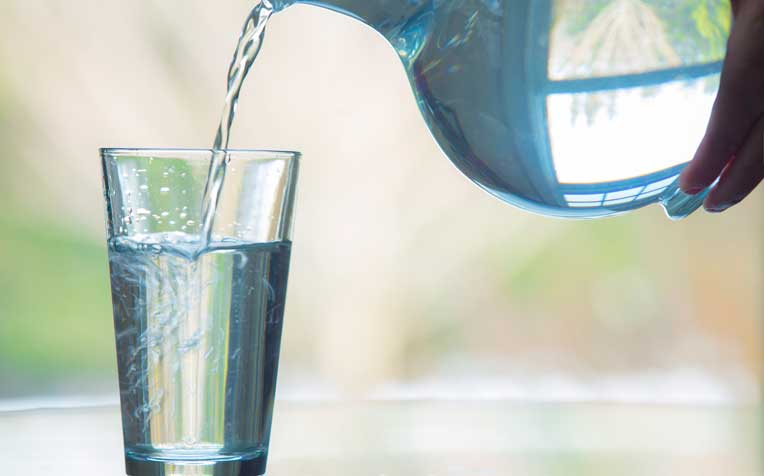Hydration While Eating A Meal
"[But] even if you had a stomach full of water, it would not interfere with digestion of the food. [Water would not hamper enzyme activity because] enzymes adhere to food particles regardless of the presence of water [and nor would water affect stomach acidity]."
"It's not like you start off with a certain amount of acid and that is it. If you need more, your body will make it."
Deborah D. Proctor, American Gastroenterological Association
 |
| Getty Images |
Anything that is consumed whether food or drink momentarily makes the stomach slightly less acidic and the stomach responds by producing as much acid as is required to enable digestion of the meal; the stomach's function. There is a pervasive belief that water works to slow the pace of food moving out of the stomach and into the small intestine. But this is a belief that belies science where studies show that drinking water alongside a meal has no effect on the rate of stomach emptying.
The stomach treats a drinkable meal such as a smoothie and similar ingredients eaten whole with the liquid sipped with it alike; both forms of meals take the same time to digest. Drinking water during meals is a likely aid to digestion, in particular during the chewing and swallowing stages where liquid is an assist in softening food and moving it through the esophagus. Hydration in general aids in the elimination stage of digestion, helping to ensure stools are soft and move through the bowel.
Digestion is initiated in the mouth, for this is where food is mashed and softened by the chewing process and by the enzymes contained in saliva. Food passes down the esophagus to the stomach, and is broken down there by acidic gastric juices. The mixture that results moves into the small intestine where it combines with bile acids and enzymes. This stage is where roughly 75 percent of nutrient absorption occurs.
Food matter that has not been absorbed is then further processed in the large intestine and colon, preparatory to excretion, a process which takes in its entirety, between 24 and 72 hours, depending on the individual. Water does not dilute digestive juices in the stomach. Water is absorbed fairly quickly in the stomach, typically within twenty minutes' time. If any dilution occurred initially it would quite swiftly dissipate.

It is, however, true that drinking water before eating temporarily (20 minutes' duration) takes up stomach space, leading to a satiated feeling during the meal; in itself signalling to the person consuming a meal that they have had enough sooner than they normally would. For anyone making the effort to lose weight it could be a useful habit.
Studies indicate that people have a tendency to eat less at a meal if they have taken in one-and-a-half to two cups of water beforehand. On the other hand, it should be realized that overdoing this could mean that during the truncated meal, sufficient nutrition required for good health may be lost in the process.
There is another issue, that of bloating, an uncomfortable, too-full sensation that may arise with consuming too much water.
Slowly sipping water accompanying a meal is a preferable method to ensure that thirst is quenched while food portions are being managed and sufficient nutritional intake is assured. As for digestive problems relating to ordinarily drinking water before and during a meal, there are no risks to digestion, but for comfort and utility the operative caution is moderation.

Labels: Elimination, Gastrointestinal Tract, Health, Nutrition

0 Comments:
Post a Comment
<< Home